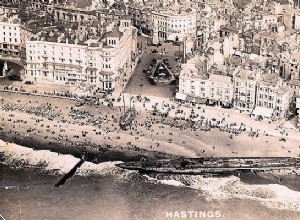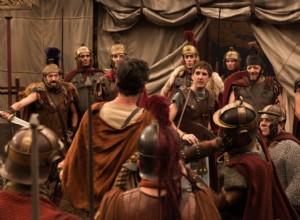Interesting photo, right? Corresponds to the German submarine U-118 washed up on Hastings beach , Sussex (England), after the First World War . Although most of the German fleet was imprisoned in the bay of Scapa Flow, in the Orkney Islands (Scotland), some units were left behind and this was one




